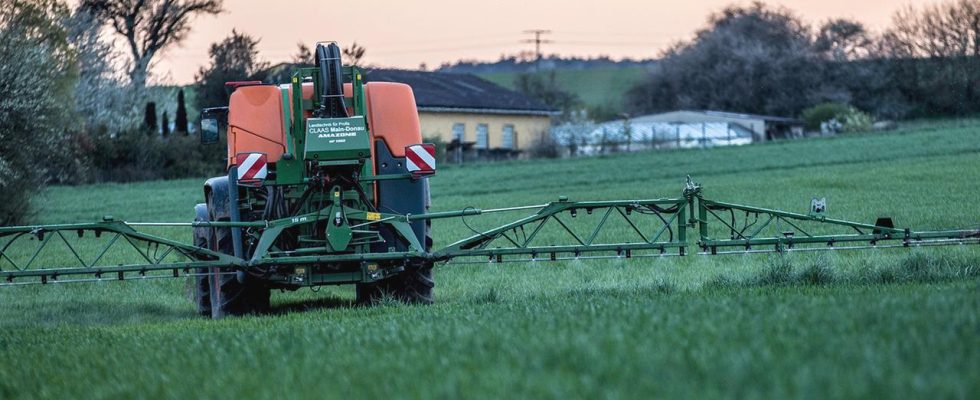The EU food authority sees no problem in approving glyphosate. However, the traffic light coalition had agreed to take the pesticide off the market. Greens and FDP have different opinions on this.
Glyphosate kills any plants that come in contact with it. After treatment with the pesticide, the fields are free of weeds. Cereals, maize or rapeseed can then grow again undisturbed. For farmers, this means maximum yield and competitiveness compared to foreign producers who sometimes work with even more effective pesticides.
The negative consequences of using the pesticide glyphosate are serious, says the Green Minister of Agriculture, Cem Özdemir. A spokeswoman for his ministry responded to an inquiry that biodiversity is undoubtedly being damaged by the use of glyphosate.
The deputy leader of the FDP parliamentary group, Carina Konrad, describes the coalition plan to ban glyphosate as “intellectual laziness”. Biodiversity is also affected by mechanical plowing of the fields, an alternative to the use of herbicides. Instead of bans, the FDP parliamentary group calls for innovations.
Konrad is also a qualified agricultural engineer. A glyphosate ban would cause many farmers economic problems because mechanical weeding not only harms biodiversity, it also costs more. “Farmers are a bit at a loss as to what they should do to produce healthy and sufficient food.” In addition, the use of machines would in turn result in more CO2 emissions.
Unclear legal situation
The European Food Safety Authority (EFSA) sees renewed approval of the weed killer glyphosate in the European Union as uncritical. This assessment serves as the basis for a possible five-year extension of the glyphosate approval.
The Ministry of Agriculture is currently examining whether Germany could issue a ban despite an EU permit. It could be possible through the regulation of plant protection products. The previous government has stipulated that from January 1, 2024, the use of glyphosate and glyphosate trimesium will be prohibited.
FDP: No reason against readmission
The FDP parliamentary group said: “It was a mistake that the CDU, together with former Minister of Agriculture Julia Klöckner, imposed bans in certain areas.” Nothing speaks against a re-approval of glyphosate. It was also clearly agreed in the coalition agreement that the approval of pesticides must be based on scientific criteria. This rules out making decisions based on perceived truths.
The German Farmers’ Association is convinced that proper use of the pesticide does not conflict with environmental interests. Secretary-General Bernhard Krüsken also considers a national ban to be illogical: “Then you also have to ensure that products that have been produced using glyphosate should not be given any market access here either.”
BUND: Waiver is possible
With regard to glyphosate alternatives, the environmental protection organization BUND refers to the many organic farmers who already work without herbicides. “There are agronomic measures such as plowing under weeds or choosing an appropriate crop rotation. It is definitely possible to avoid glyphosate.”
The BUND also takes a critical look at data gaps in the EFSA report. This concerns, among other things, possible risks for the diet of consumers. The authority explained that the effects on biodiversity could not yet be conclusively assessed.
Greens: Ban should be implemented
Another reason for Green MP Karl Bär to take the pesticide off the market: “Assuming glyphosate is not harmful to health and we ban it – then we will get more ecological agriculture. If it is harmful to health and we allow it, we live with it the health risks. I’d rather take the more ecological agriculture.”
Bär is optimistic that the project to ban glyphosate from the coalition agreement can be implemented. We finally agreed on that, and we will now go through with it.

